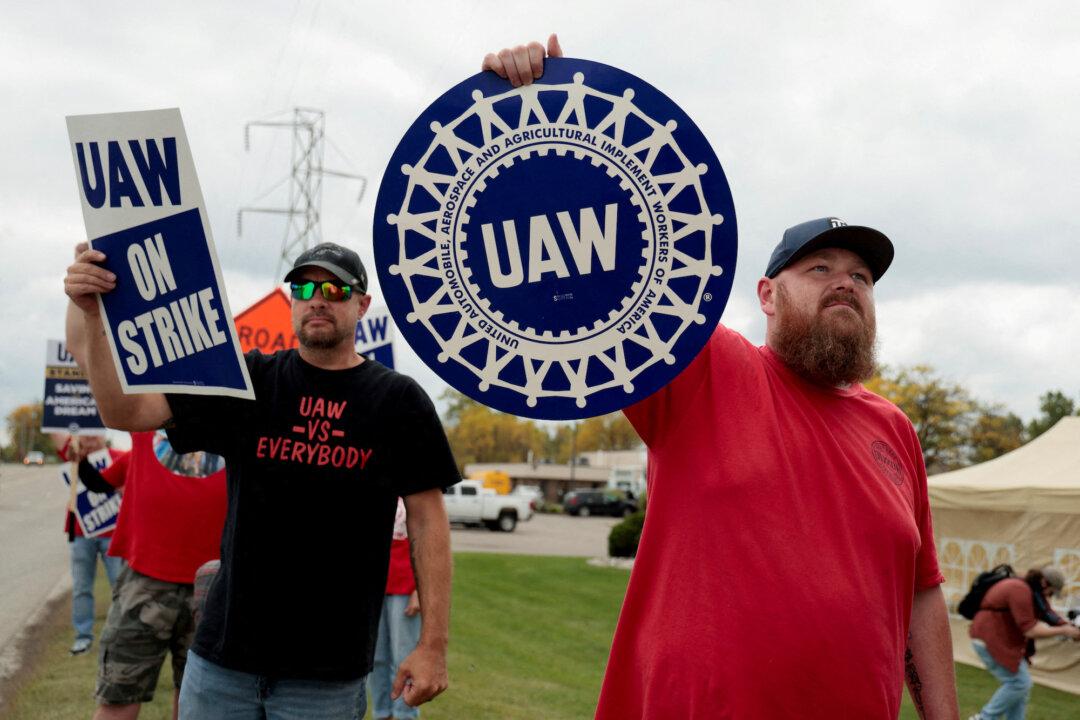The United Auto Workers (UAW) union expanded its strike to a Stellantis pickup truck facility in Michigan, resulting in thousands of workers walking off the job.
The UAW confirmed on Oct. 23 that roughly 6,800 union-represented members at the Sterling Heights Assembly Plant joined its “Stand Up Strike.” The latest labor development effectively halted production at the automaker’s massive plant that makes the RAM 1500 trucks. Stellantis is one of the “Big Three” automakers, the other two being Ford Motor Co. and General Motors Co.





